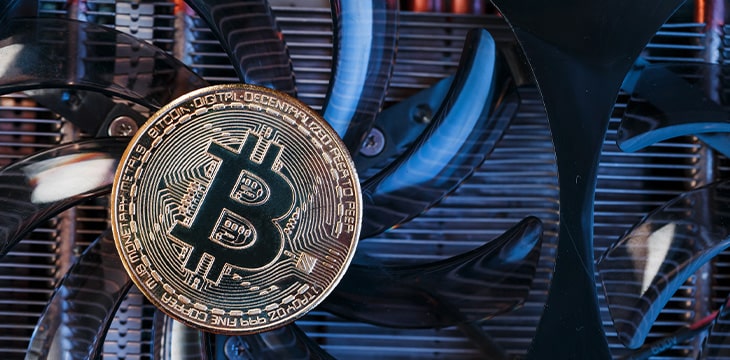|
Getting your Trinity Audio player ready...
|
The economics and strategy around mining digital currencies will change in the future. As the block reward diminishing subsidy continually halves and approaches zero, miners will rake in less revenue from block subsidies and will rely on transaction fees to generate the bulk of their income. Many blockchains will have to make changes to their protocol or tolerate high transaction fees to incentivize miners to run a node on their network. Fortunately, Bitcoin SV already has the protocol and specs of the future. On February 6, TAAL Distributed Information Technologies Inc. (CSE:TAAL | FWB:9SQ1 | OTC: TAALF) mined a 3.8 GB block with a block subsidy of 6.25 BSV and transaction fees totaling 9.7 BSV.
Block #725511 comes in at 3.8 GB! Processing over 180k+ on chain transactions and earning 6.25 BSV in Block Subsidy + 9.7 BSV in Transaction fees. https://t.co/o04k44xKO2
— TaalBlockchain (@TaalBlockchain) February 6, 2022
“TAAL believes strongly that the mining model of the future is again all about unlimited scale, and returns will migrate towards enabling increased transaction fees. In fact, we are already seeing this with the recent 3.8GB block generating 9.7 BSV in transaction fees. This is an incremental process but one that will lead the BSV network to terabyte-sized blocks. At that capacity size, BSV will be able to process millions of payments and data transactions per second, and support the needs of the global population,” Angela Holowaychuk, the Chief Marketing Officer at TAAL, said.
Most blockchains are restricted by artificial block size limits that only allow a finite amount of data to be transferred in each block. Not only will that model cut into miner profits in the future, but it is also one of the reasons why block reward mining is considered inefficient. If producing a block consumes the same amount of energy across all chains, then the most energy-efficient chain is the one that can package the most data into a single block.
“This is all about scalability and efficiency in terms of transaction size and volume, and sustainability. Mining a 4GB block does not require more computing power and does not consume more energy than mining a small block. This accelerating scalability and data transaction throughput demonstrates the unique enterprise value that TAAL believes only BSV can deliver,” said Holowaychuk.
“When we think about the economics of crypto mining, it’s also key to recognize that our customers, the enterprise of today and the future, have clearly stated ESG targets. Their blockchain investment will in part be guided by this, and as the recent MNP report made clear, only BSV can scale in ways that support those targets, and as a result, support the economics of crypto mining,” she added.
Benefits beyond mining
A locked protocol, unlimited block sizes, low transaction fees, and block rewards that are significantly greater than the block subsidy do not only benefit block reward miners. App developers find these features beneficial because they let them build enterprise-scale applications on-chain with the confidence that the work they are doing today will not be invalidated in the future due to a protocol change.
There have been instances where engineers have built solutions on-chain, but all of their work becomes nullified by a centralized protocol developer update that takes place on the blockchain. Chains that often experience these updates—soft forks and hard forks—have trouble attracting serious application developers because the devs fear that their solutions will either disappear or not function properly due to a protocol upgrade that the network has planned for the future.
BSV is the only blockchain with a locked protocol, unlimited block sizes, and low transaction fees. This creates an environment where both app developers and miners can thrive without worrying about their future profitability or how sustainable the economics of the blockchain are.
Watch: CoinGeek New York panel, How to Achieve Green Bitcoin: Energy Consumption & Environmental Sustainability

 02-14-2026
02-14-2026 




